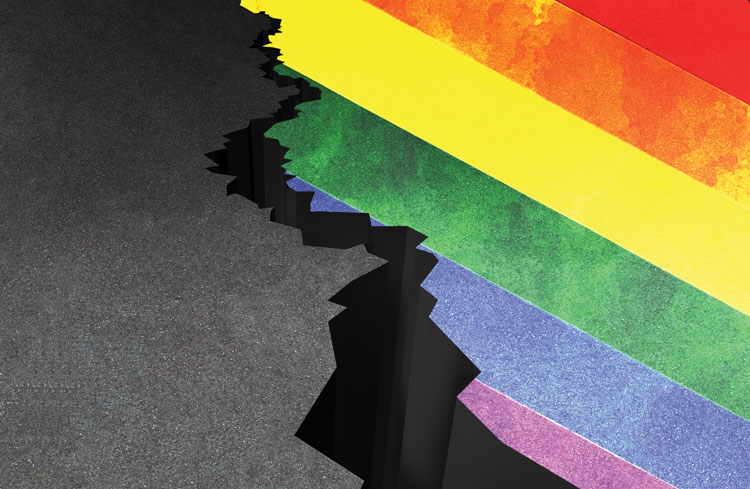New York legislature OKs ban on gay and trans ‘panic defenses’

Photo illustration by Sara Wadford/Shutterstock
New York is poised to join the increasing number of states that are banning gay and trans “panic defenses” in murder cases.
According to USA Today, Gov. Andrew Cuomo has said he would sign a bill passed Wednesday saying “it shall not be a ‘reasonable explanation or excuse’ … when the defendant’s conduct resulted from the discovery, knowledge or disclosure of the victim’s sexual orientation, sex, gender, gender identity, gender expression or sex assigned at birth.”
If Cuomo follows through, New York could be the seventh state to ban the defenses. Hawaii Gov. David Ige is still considering a ban in his state, according to LGBTQ publication The Advocate.
As the ABA Journal reported in January, legislatures have increasingly considered this type of ban. In 2014, California was the first state to pass a ban. Existing bans in Illinois and Rhode Island took effect in 2018, a year when several others were considered in state legislatures and the District of Columbia Council. Connecticut, Maine and Nevada passed laws this year.
Law professor Anthony Michael Kreis, who helped write the Illinois provision, told the Journal last winter that this may be on state legislatures’ minds because those are jurisdictions where other major LGBTQ civil rights fights have been won.
“I think of this as … the next generation of LGBTQ rights issues,” said Kreis, a visiting assistant professor at the Chicago-Kent College of Law.
“Gay panic” and “trans panic” defenses, broadly, argue that the defendant’s responsibility for a violent crime should be mitigated by his or her feelings about the victim’s sexuality or gender identity. Defendants who use it are arguing that they have diminished responsibility because a same-sex pass, or discovery of the victim’s biological sex, provoked them or caused temporary insanity. They have also been used to argue for self-defense.
Despite recent strides in LGBTQ civil rights, the defenses pop up occasionally in real-life cases. In New York, James Dixon used it before pleading guilty in 2016 to beating Islan Nettles to death on the street. The two had flirted, but Dixon told police he was enraged when he discovered that Nettles was a transgender woman and his friends began making fun of him for trying to pick her up. The New York Times reported at that time that Dixon’s prison sentence was ultimately 12 years, less than what prosecutors had requested.
“For decades, LGBTQ New Yorkers fought for basic recognition that they mattered under New York law,” New York state Sen. Brad Hoylman told Newsweek. “This session, we’ve made it clear that they do.”
D’Arcy Kemnitz, executive director of the National LGBT Bar Association, told the ABA Journal last winter that the defenses cause multiple harms.
“It tells LGBTQ+ individuals their lives are worth less than those of their heterosexual friends and neighbors, it excuses violence committed against the LGBTQ+ community, it further implies that there is something unnatural and dangerous about same-sex intimacy,” Kemnitz said. (The plus sign IS intended to include a larger number of people who are not straight or cisgender.)
The ABA House of Delegates voted to condemn gay panic and trans panic defenses with 2013’s Resolution 113A.



